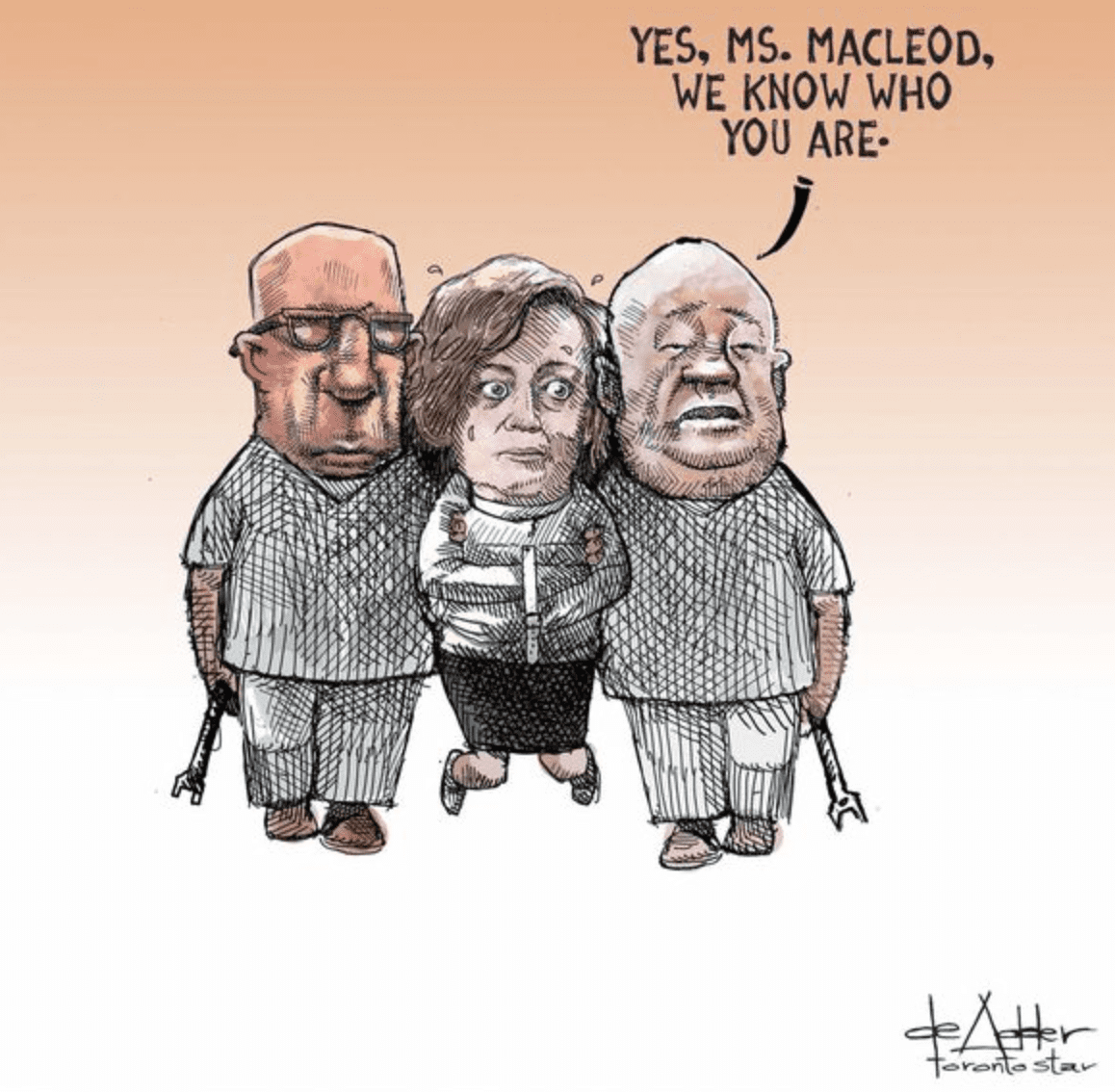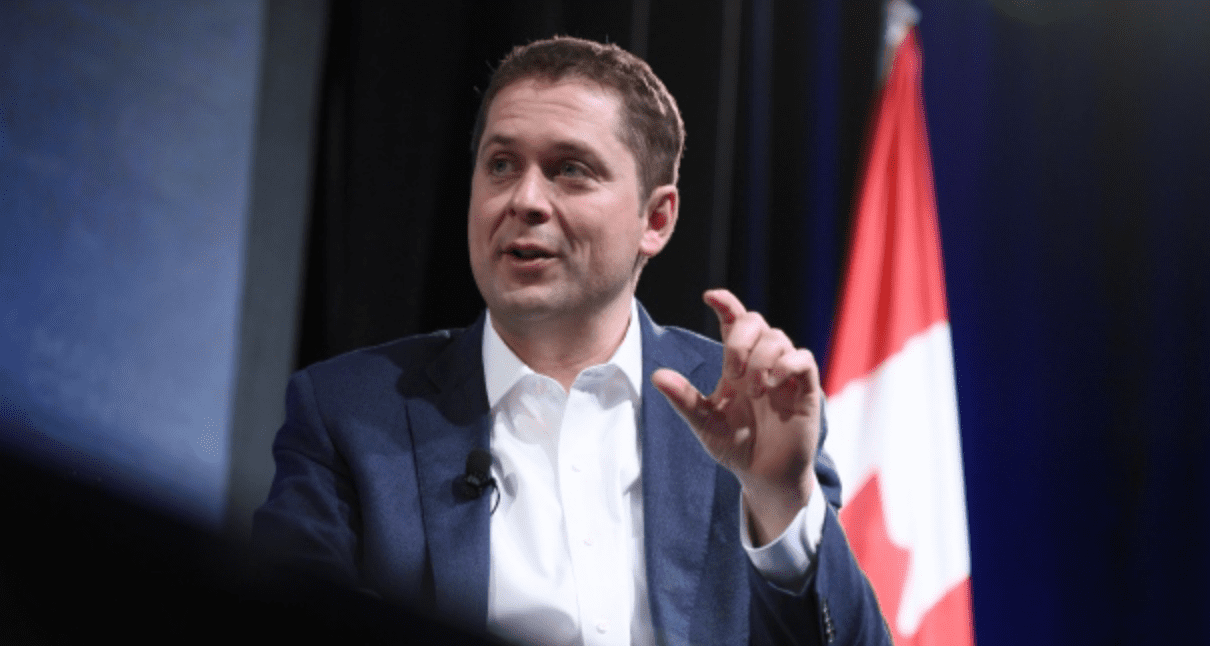This content is restricted to subscribers

The views, opinions and positions expressed by columnists and contributors are the author’s alone. They do not inherently or expressly reflect the views, opinions and/or positions of our publication.

This content is restricted to subscribers
The views, opinions and positions expressed by columnists and contributors are the author’s alone. They do not inherently or expressly reflect the views, opinions and/or positions of our publication.

Remember a while back when there was all that consternation about this being a climate change election, and how nobody but the Liberals wanted that? Well, guess who is once again making the election about climate change.
C'mon, guess! You won't believe this, but it's Conservative Leader Andrew Scheer. Again.
This week, Scheer fired off a sanctimonious letter to the prime minister over a new set of fuel regulations set to come in force in 2022. Scheer was aghast — aghast! — the government would put regulations on fuel and accused the Liberals of initiating a kind of secret tax on fuel.
While the final regulations have not been released, a draft of the regulations explained to reporters last month would require liquid fossil fuels — which is to say, gas and diesel — to lessen their carbon intensity by 10 to 12 percent by 2030, from 2016 levels. In Scheer's letter, he says this could cost somewhere around $0.04 per litre of gasoline.
Never mind for a second that Scheer's just-released environmental plan is chock full of proposals for regulations — secret taxes, in the gentleman's own parlance — let's focus on what Scheer is proving about his environmental goals, such as they are. The thrust of what Scheer and his party are proposing is that climate change should be acknowledged, but nothing should be done because it might cost money.
That's it, that's the Tory plan: do as close to nothing as possible because doing something might be difficult.
The trouble with massive, existential problems like climate change is that it's going to cost everyone money to fix. The argument for making that worth it is that catastrophic environmental collapse is, uh, very bad. We're going to think these arguments about four cents per litre of gas are pretty funny when we're all skeletons, bleaching under a cruel desert sun.
There's also another side to this. If you'll allow me to plug my own work for a second, I wrote a piece for Maisonneuve Magazine* that looks at how the Sudbury mining giant Inco — now Vale — reformed its operations after tough acid rain regulations came into force. One of the interesting outcomes — beyond a giant reduction in sulphur emissions and the regreening of Sudbury — was that the company was able to fully pay for the necessary upgrades through the minimization of waste and the innovation of processes that allowed them to capture and sell off the acid rather than let it become rain.
The thing is, none of that would have been possible if the government of the day — the Ontario Liberal government of the mid-80s — had not stepped up and put solid, well defined regulation on industry.
In a brief pamphlet put out at the time by the Ontario environment ministry, Jim Bradley the then-minister lays out the case in a brisk couple pages why certain industries are targeted. "We all know what acid rain is, what it does, and the terrible toll it is taking on our environment, on our lives and on our future. We know where it comes from. We know who is producing it. We even know how much they are producing," Bradley wrote.
In the pamphlet, released in the 80s, Bradley goes on to say the regulations won't come into force until 1994. "It will take that long to do the job properly without wrenching repercussions on our economy," he wrote.
When compared to the jargon-heavy nonsense so common in political communications these days, it's remarkable. It's to the point, without being overly aggressive, and it's written in plain language. Modern politicians could learn a thing or two by reading it.
Anyhow, putting regulations on fuel producers will very likely pass costs on down to consumers, but those costs may not be quite so catastrophic. But without setting standards for industry, and sticking to them, the climate will continue to warm.
And yes, that comes with a cost, particularly if a car is your only way to get around. Much of our country and most of our cities are designed around the personal automobile. I'm fortunate enough to live in a part of Montreal where I don't have a ton of trouble getting around without one. But I know that's a bit of a rarity.
There are still ways to pay less for gas, though. For starters, you can drive a smaller car. If you're concerned about the cost of filling up, make choices that will allow you to fill up less. Small, fuel-efficient cars don't sell well in this country because the cost of owning larger guzzlers isn't high enough to discourage their purchase.
And this goes to the heart of Scheer's opposition to any climate related initiative.
If he's unwilling to do anything for the climate that might have a cost, then he's not willing to do anything for the climate. Full stop. Analyzing everything he does on this file must be looked at in this light.
Scheer demands his opponents be straight with the public about their plans, he should perhaps take his own advice. He doesn't plan to do anything about climate change, it's time he said so.
***
*Which you'll need a subscription to read, or you'll have to pick up a physical copy at a newsstand — something you absolutely should do.
Photo Credit:
The views, opinions and positions expressed by columnists and contributors are the author’s alone. They do not inherently or expressly reflect the views, opinions and/or positions of our publication.